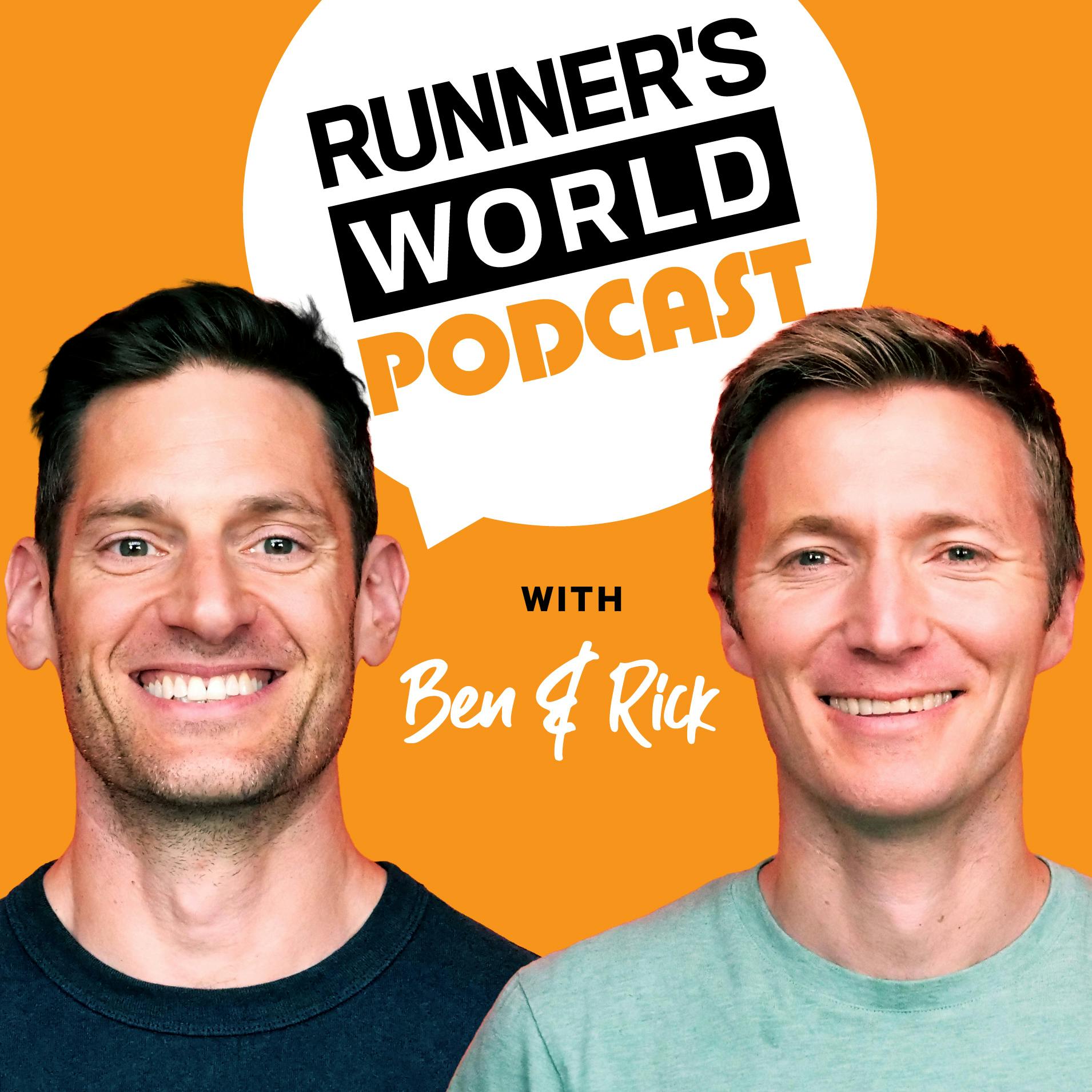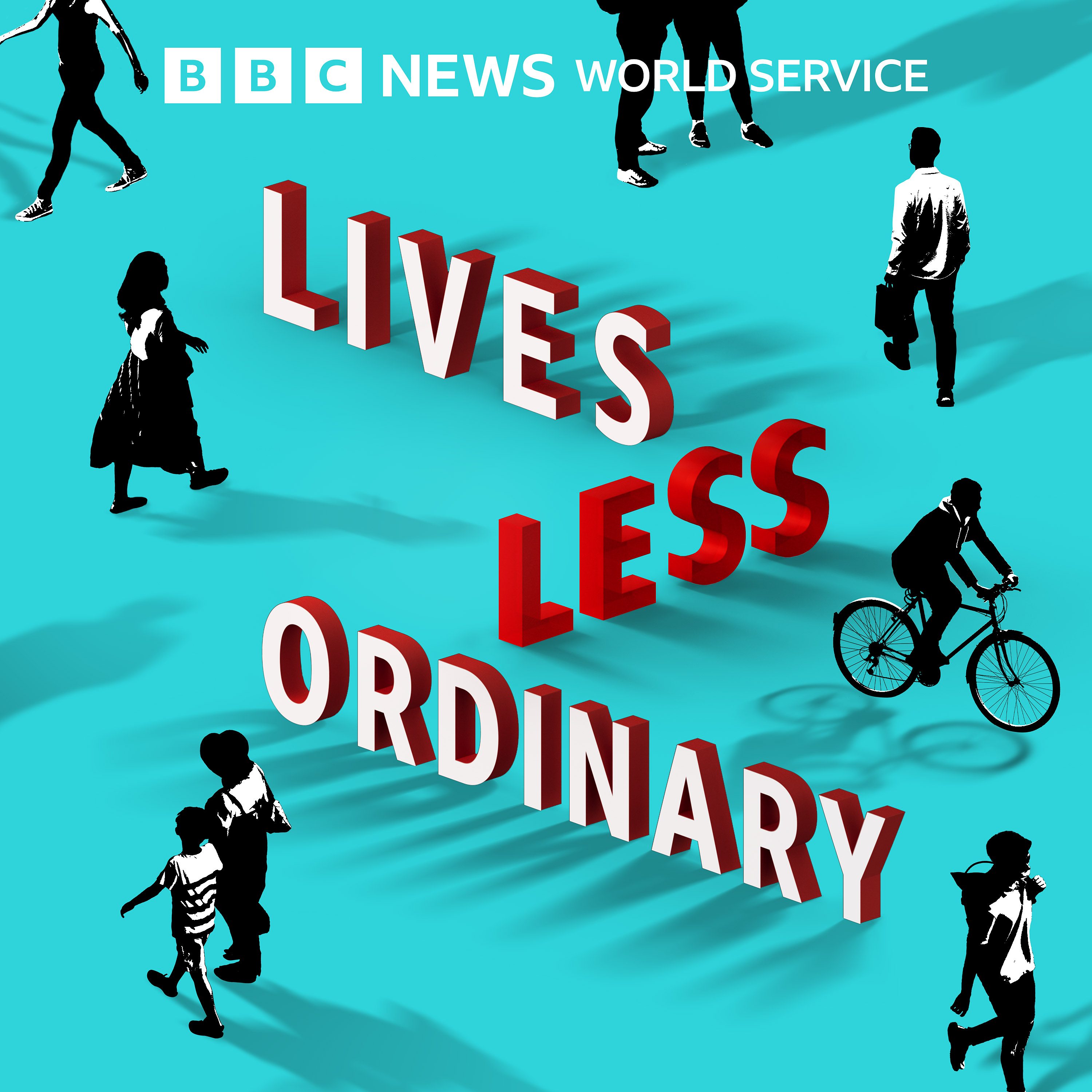
Brian's Run Pod
Welcome to Brian's Run Pod, the podcast where we lace up our running shoes and explore the exhilarating world of running. Whether you're a seasoned marathoner, a casual jogger, or just thinking about taking your first stride, this podcast is your ultimate companion on your running journey.
Join us as we dive deep into the sport of running, covering everything from training tips and race strategies to personal stories and inspiring interviews with runners from all walks of life. Whether you're looking to improve your race times, stay motivated, or simply enjoy the therapeutic rhythm of running, Brian's Run Pod has something for every runner.
Brian's Run Pod
Alycia Carrillo Part Two: Why Runners Shouldn't Fear the Weights
Strength training is an essential but often misunderstood element for recreational runners looking to enhance performance and prevent injuries. Coach Alicia Carrillo shares practical advice on how runners should approach strength training for maximum benefit without falling into common traps.
• Basic movement patterns all runners need: squats, hinges (RDLs/hip thrusts), upper body push/pull, and core work
• Focus on unilateral (single leg/arm) training which translates better to running movements
• Plyometric exercises like broad jumps and pogo jumps build tendon strength, especially in the Achilles
• The biggest mistake: trying to make strength training into cardio by rushing through with minimal rest
• Optimal rep range is 5-8 with heavier weights rather than high-rep muscular endurance work
• Strength training builds mental toughness that carries over to challenging running sessions
• Misconception debunked: strength training won't cause runners to "bulk up" when done properly
• Quality over quantity: 4-8 exercises, 2-3 sets, performed with proper form and adequate rest
• Beyond performance: strength training enhances quality of life and functionality as we age
If you've been neglecting strength training or approaching it incorrectly, now is the time to incorporate these principles into your routine. Your future running self will thank you!
Alycia Carrillo Website
Brian's Run Pod has become interactive with the audience. If you look at the top of the Episode description tap on "Send us a Text Message". You can tell me what you think of the episode or alternatively what you would like covered. If your lucky I might even read them out on the podcast.
Instagram
So you're thinking about running but not sure how to take the first step. My name is Brian Patterson and I'm here to help. Welcome to Brian's Rompod, welcome back to Brian's RunPod, and I'm your host, brian Patterson, and today we're diving straight into another fantastic episode. This week we continue our conversation with the brilliant Alicia Carrillo, and I kick things off by asking her about the core exercises that recreation runners should be really focusing on. Before we jump in, I just wanted to give a massive thank you to Alicia for joining us and I'm certain you'll agree there's something in this chat for everyone, especially if you've ever wondered about how to approach strength training as a runner. So, without further ado, let's get into it.
Speaker 1:So, without further ado, let's get into it On a very basic level, for I mean other sort of my audiences very much recreational runners. We have a thing over here called Parkrun. It's kind of worldwide, I think you do. It was started by a guy who started it in a park very near us, about two or three miles from where I'm and now which is um in greater london, twickenham and um. So I just wanted to get your advice to them as to what would be the key sort of foundation exercises that they should be doing when they're going to the gym, if they don't have the luxury of having someone standing over them with a phone, online or wherever so and uh, so what would there be? Uh, what would the key areas? Because it's because being a runner is very different to, let's say, someone who's either bodybuilding or, you know, doing other types of exercises.
Speaker 2:Sure, yeah, and I think there's kind of two points and it's less about the movement, the exercise selection, and more about the execution. But I'll kind of talk on both of those. So for exercise selection, I mean you really just want something well-rounded, and that's the case for most people, and I think that's where people kind of miss is runners. I'm sorry, but you don't need a special fancy program, you know, compared to, say, just a regular person that wants to work on their health, their fitness, their strength, or a basketball player. Everyone kind of needs the same basic movement patterns.
Speaker 2:So you want some type of squat movement, some type of hinge like a RDL or a hip thrust. You want an upper body push like a push-up, a bench press, an overhead press, an upper body push like a push-up, a bench press, an overhead press, an upper body pull like a row, a pull-up, a lap pull down, and then you want you know your core movement and then within that you want to make sure you're doing unilateral training, so single leg, single arm, which is going to translate to running a little bit better. Those are kind of the big ones. As far as like weight lifting, I do really like plyometrics for runners. I think oftentimes you get a little pushback of like well, I'm running, isn't that a plyometric in itself? And yes, but no, the ground contact time meaning like the time that our foot spends on the ground running can be quite a bit longer than a true plyometric. So it's taking the same movement and dropping the volume down and making it more powerful.
Speaker 1:Right.
Speaker 2:So upping the intensity. So if I'm doing a broad jump or I'm doing lower leg plyos, like pogo jumps, things like that, that can be really good for your tendon strength, your Achilles specifically, good for your tendon strength, your Achilles specifically. And then what I was saying about the execution is that I think a lot of runners tend to take strength training and try to make it cardio. So I'm like don't do that, don't do that, keep strength training.
Speaker 2:Strength training and by that I mean respect your rest periods. If you're doing everything you know you're giving yourself 30 seconds rest in between sets, you're probably not pushing hard enough, you're not lifting heavy enough weights to actually get the adaptation that we need. And then two the volume. If you're doing sets of 20, sets of 15, sets of 25 of every movement for that muscular endurance, it's like we don't, we don't need that. You're getting that from running. So you're really just layering the same stimulus on top of each other. If you're, if you're running and then doing this strength training, that's at such a high volume with a low rest period. So we really want it to complement. And so what I have runners do, which usually they're like ah, scary, um, is pull back and do like you know five to eight repetitions, heavy and less sets. Give yourself a rest period and keep strength training, strength training yeah, I mean, that's what I've been hearing is that?
Speaker 1:it's sort of I was going to ask you what is that rep range so five to eight, so you need to be.
Speaker 2:Yeah, I mean you can go up to 10 or 12 but, like generally, it's you're going to get a lot more out of going heavy for a few reps because it's less global fatigue. It's less muscular fatigue, less um nervous system fatigue in a way, or it can be um, so you're going to get more out of it instead of just constantly being in a state of fatigue right, yeah, and I mean those are big.
Speaker 1:And also the other thing is is that the legs are quite big muscle groups as well. So you know, making sure that you're, you know you're training those big muscle groups are quite important. So doing you know that, um, you're not in danger of sort of like really bulking up or anything like that.
Speaker 2:So but it's, yeah, correct that's a big misconception too, I think in the running community. And it's funny, I always I go back to my mom, because she was a runner, the coach, my whole life, but she was the same way Like she was very reluctant to strength train and then when I started working with her about six years, ago she was like yeah, she was like, oh my God, why didn't I do this sooner?
Speaker 2:Um, but she was somebody that dealt with the you know the knee problems, the Achilles problems and all of that, and it's you know, the, the idea that you're going to bulk up. What I want runners to remember is that a good coach isn't training you for vanity, right, they're training you for performance, and that's very different. They're training you for performance, and that's very different. So, yeah, I mean, if you're a runner and you're going out there and you're doing bodybuilding style training and you know, then that might not get the result you want. But if you're looking at it from more of a performance standpoint, a functional standpoint, and you're not, you know, overdoing it on the muscle groups and also, I mean the amount runners are running and like it's bulking isn't as easy as we think it is no, it isn't.
Speaker 1:The main thing is is that obviously, from what you can summarize is to obviously do a lower rep range?
Speaker 2:Are you looking at, let's's say, maybe three to four reps or sets rather um, or it really depends, not even no like two to three and, and to be clear, like those are working sets, so you'll have your warm-up sets where you know you might take some lighter weight for a ride just to get the body used to it.
Speaker 2:But I'm talking about the sets where you know you might take some lighter weight for a ride just to get the body used to it. But I'm talking about the sets where you're pushing within what we call two to three reps in reserve, meaning that you could only do two to three more reps until failure, muscular failure. And so if you're, if you're pushing in that range anywhere from one to three really is where we see really good muscle adaptation. Then you can get a lot out of two Like you really need in one session, let's say like four to eight exercises, two to three sets, anywhere, six to 12 reps, like it's not as much as you might think it is.
Speaker 1:And then also the other thing is it's a good way to prevent injury, but also it's a very good way to overcome it.
Speaker 2:Yeah, absolutely yeah, I've worked with a lot of clients on that aspect too. Actually, the one who's training for New York. She had come to me and she had kind of expressed some concerns about, you know, injury and so on and so forth and it's like all right, well, let's make sure that we have a really balanced program and we're managing the volume really well with your running and your strength training and we are strengthening those muscles so that those old aches and pains don't flare up.
Speaker 2:And if you are a runner who is injured, say you know, I mean, that's like the worst thing, right? If you're a runner and you can't run like that sucks. So how? Let's take that time to strengthen, strengthen that tissue, make sure that we're not going to re injure ourselves, that we're not going to flare back up. That's where I think strength training is really fun when you're a runner, because it's kind of like you go to the gym and it's like you're going shopping for what your weaknesses are.
Speaker 2:And so, whether that's actual muscular weakness or anything like that, but a lot of runners, you know, they neglect training their posterior chain, meaning their glutes and their hamstrings okay and that's where we see a lot of injuries come in, and so it's like you're kind of going shopping of like what do I need to develop? Like what can I work on?
Speaker 1:lateral movements, things like that so I mean, a lot of the clients will come to you and they have already been sold on strength training already. Is, is that correct? So you know they, they know what they're going to get. So for someone who, yeah, uh, is as we said, we may have covered it already, but who hasn't, you know, doesn't, as I keep, is that you don't have the coach, as to what would you say? I mean, one of the key benefits is to overcome injury and to prevent injury. What would be the other, you know maybe other couple of benefits?
Speaker 2:Yeah, yeah, I mean, it's really hard, right, when you're trying to use long-term benefits as motivation for somebody, it can be difficult. It's like when somebody is trying to work on their health and you're saying, well, if you don't eat healthy, you're going to have health issues down the line. Like most people don't worry about consequences until they're staring them in the face. So it's all like good and well for me to say, hey, like you won't get injured, et cetera. They're like, okay, whatever, but I I think the education is so important, so I do like to focus on that.
Speaker 2:I like to focus on the performance benefits. But one thing I really like to focus on is like the mental benefit that you're getting from doing the strength training and just you know, acknowledging that when you are adding that other aspect to your training, that's one more lived experience that you have to fall back on. When you're in a race or you're in a tough session, even training session, and you're deep in that pain, cave um, you're able to tell yourself like, no, I have strong legs. Like your legs might be tired, but you're able to trust your training. Know, like that you put in the work, your quads are, are strong, they can handle it. You can keep pushing, so it's just, it's one more. I think that's like a big benefit for people that they can kind of start to grab on right away is the mental toughness.
Speaker 1:And I just think, from a functional point of view, as we get older, it's, I just think it's so much. Yeah, I mean my dad died this year but he had dementia and you can see, I mean I used to visit him at an old people's home and you could see, you know how people you know having your strong legs, you know if you've got weak legs you're susceptible to falls, that kind of thing. I know we're kind of going off on a tangent here, but it's still, I think very. No, but you're susceptible to falls, that kind of thing. I know we're kind of going off on a tangent here, but it's still, I think, very no, but you're right, you're absolutely right it's.
Speaker 1:It's such an important aspect.
Speaker 2:I mean it's, yeah, I mean the longevity I I like to say, you know, like cardiovascular training, conditioning, that is going to, you know, enhance your longevity. That's going to make you, maybe, live longer. Strength training is going to enhance your quality of life.
Speaker 2:Yes, right yeah because you can be 90 years old, but if you're, you know, in a wheelchair, you have, your muscles have completely atrophied, um, you can't do things on your own like. That's a lot different than if you're 90 and you're still walking around and and you see it all the time, with people who have taken really good care of themselves and that in that sense, and preventing the falls and yeah again.
Speaker 2:But it's one of those things where it's like people don't, they don't want to acknowledge the consequences until they're at that point and then it's like, dang, I should have started sooner, so don't be one of those people. It's all you listening out?
Speaker 1:yeah just, uh, hopping back to the plyometrics a bit sorry, um, do you um and something that uh, during my doing the podcast I've kind of dabbled into talking about this and that's cadence. I know people have talked about the 180 and it's very much a number that's banded about. But you know some say it's not really that important. But I know plyometrics is something that can help. What are your views on that?
Speaker 2:Yeah, I mean, I've heard the same things as you like.
Speaker 2:There was the moment where 180 was like the holy grail yes, like yeah yeah, you're gonna be an elite runner, and then people kind of pulled back and they were like that's maybe not that important, but I I think what plyometrics, the carryover really is, like the rhythm and the coordination that can kind of get you a little bit into a more efficient cadence for you. Because at the end of the day, like I mean, yeah, we do have evidence that elite runners have that cadence of you know, like 175 to 185 or whatever it might be.
Speaker 2:But most of it is because they're efficient, right. So if we can get you to be more efficient through plyometrics, you know, strengthening tendons, being more rhythmic, and that can make your cadence more optimal for you, then that's going to pay dividends. And I know, for me, when I first started running, my cadence was like 150, like I don't. I just I don't know, I didn't know what I was doing, um, but it's like I've never been like a 170, 180, but I can get pretty close to 170s now oh right, that's pretty good and and just from from being much more efficient with my energy.
Speaker 1:I'm a 160 guy. I just don't watch myself going past three-shot windows because I think, oh my God, he looks like a duck.
Speaker 2:You always think you look so much better than you do, until you catch yourself yeah, I know, yeah, that's true that, yeah, that's, that's, that's really true.
Speaker 1:Um, do you think? I mean I know you, you used the app, that, uh, and you did sort of kind of touching it. But in a general thing, with a lot of the apps, with a lot of the data, sometimes it know from either Garmin or even you know the Apple Watch and that kind of thing they give you your power or strides per minute and that kind of.
Speaker 2:Yeah, I get it a little bit Not a ton, honestly, which is great because I never want people to obsess over the numbers, because, at the end of the day, we want to look at trends over time. If we're sitting there analyzing on a day to day, that's just a recipe for being unhappy and unimpressed with ourselves, because there's so many factors that go into an individual training session, right, Like how did you sleep the night before? How did you fuel? Are you stressed out? Did you have a bad day at work? Did you have a fight with your significant other?
Speaker 2:Like just so many, yeah, like so many things that people don't think about but that really can play into how they perform in a single session. So every now and then I'll have a client start to get a little bit worked up and they're like I haven't improved on this or I haven't improved on that and, honestly, usually you can go back in the data and show them that they actually have improved and they're just you know they're focusing on too small of a picture, so it's like we need to zoom out a little bit Instead of seeing like the little plateau that we're in right now, realize like how far we've come over the last three months, six months, yes, yes, exactly, exactly.
Speaker 1:I always think the thing that helps for me is that if I'm doing a particular session all day, if your kind of mindset is in the right space, you're thinking I feel good today and I'm going to, you know, enjoy it or never, it tends to work out. I mean, it's hard, I know, after a long day at work, you know, because you're tired and you really have to sort of energize yourself and motivate yourself to do what it is.
Speaker 1:But you know, you've kind of told yourself that you've got to go, otherwise it's another day I've missed, or something like that. But do you think that's? You know, you have to be in the right headspace.
Speaker 2:Yeah, and I think this kind of like applies to a lot of different things. It's like how many times have you thought you were going to have a bad workout and then you ended up having a really good?
Speaker 2:one because you were tired, conditions weren't optimal, and then you surprise yourself with like being sore. Like a lot of people really don't like the being super sore and going out and trying to do like a speed session when their legs feel heavy, but it's like you can often have like a really good workout and it doesn't hinder you as much as you think it's going to. So just going in with an open mind, not even necessarily like a place of positivity, but just an open mind of like let's just see how this plays out.
Speaker 1:Okay, good, so I just want to say I've had a really fascinating chat. Could have talked to you for hours, but we're coming nearly to the end of the podcast. But I do want to ask some quickfire questions, if that's okay with you. Yeah, so yeah, do you have a particular sporting icon? It can't be your mom.
Speaker 2:Okay, are we talking like present past?
Speaker 1:anyone, whatever, give me a couple, I don't know.
Speaker 2:So yeah, I guess mine like of all time would be Kobe Bryant, I don't know. So yeah, I guess mine at all times would be Kobe Bryant. Okay, I grew up a huge basketball fan and just his work ethic and his mentality of everything and his being realistic but also a little bit delusional about what was possible.
Speaker 1:Yeah.
Speaker 2:Which I think we could all use, so he's been a huge one for me.
Speaker 1:I'm trying to think I had a teammate at USC who her?
Speaker 2:name is Dalila Muhammad and she's just been a powerhouse in the sport and really kind of changed the landscape. She was kind of as successful of a collegiate career as I think some people expected, but she really persevered and continued to work at it and hone her craft and she's still competing.
Speaker 1:She'll be competing in the World Championships this month oh yes, that's right At 35 years old and that's just, you know, I'm like.
Speaker 2:I always think of her when I'm like, when I think I'm too old to do something, and I'm like we're the same age and she's competing in the world championships.
Speaker 1:Just smashing it. Come on, this is Kelly, yeah.
Speaker 2:Yeah, so that's a fun one, but I guess those are my two for now.
Speaker 1:Right. Is there one thing you wish that every one of us should stop doing? I've got down here. Is there any kind of common mistake? Is there a common mistake that, as you know from your clients, that people make?
Speaker 2:I guess I'll just go back to what I already kind of said is like stop trying to make your strength training cardio yeah, yeah just respect your rest periods, like please, runners. If it's only been 30 seconds and you're ready to go for your next set, you did not go heavy enough. So pick up some heavy weights, take your one to three minute rest periods and, yeah, trying to get your heart rate up and do you have a?
Speaker 1:let's make this be the last one. Do you have a dream race or is there a bucket list run?
Speaker 2:I mean, that could be anywhere in the world yeah, um, okay, so I, you know, I really only started training endurance myself three to four, well, I guess, like four years ago at this point five, four to five years ago. I feel like I've barely scratched the surface of what is out there. It's been really fun for me to get into the running community. I'm doing the Boulderthon half marathon this month in Boulder, colorado, which I've heard is a fun one.
Speaker 2:So I don't know, I don't really have one yet because I feel like I just don't even know what's out there, but I love a good trip, so I would love to travel somewhere and do you know? A scenic race or something that's just really beautiful.
Speaker 1:Or one of the top six, yeah.
Speaker 2:So if you have any suggestions, Well, you could come to London.
Speaker 1:Yeah, do the London Marathon.
Speaker 2:The weather is probably a little.
Speaker 1:Yeah, oh, just a quick one before I start. Do you think people get a little bit? I know you're on Instagram and we'll kind of include the links on and and your website, but do you do you think with, like the advent of social media, do you get any feedback from your clients about Instagram and social media, about influencing how they train, or is it not a factor?
Speaker 2:A little bit but I work hard to build a community of trust. So I think you know I I'm at the point where most of them trust what I'm doing and that's why they hire me is because we built that trust, that foundation. So they're not really coming to me and being like I saw this, I saw that.
Speaker 1:Should we?
Speaker 2:try that.
Speaker 1:Yeah.
Speaker 2:But when they do, I always try to keep an open mind, because the last thing I want to do is just shut somebody down. Okay, yeah. And if it's really ridiculous, then I'm like try to gently let them down. But you know, oftentimes it's like okay, well, it's more so like diets.
Speaker 1:Oh right, yes, yeah.
Speaker 2:What do you think? I'm always going to give my honest opinion, but I'm also for most people. This is a great thing about not being an athlete is I can be like I don't know why. Don't you try it? Yeah, yeah and because they don't have a world championship they're preparing for. So if they want to try intermittent fasting or something for a week, I'm like sure, why not? Let's see how it goes, yeah yeah, yeah.
Speaker 1:Well, I just want to say thank you very much for coming on the pod, uh, but I wanted to just say, um, alicia, you've been brilliant. You've given us some sort of great tips, um, also a bit of um, um, an idea as to your coaching. Didn't get onto the cocktails, you never know, maybe next time so, but but I, yeah, did you serve cocktails and I think you know you're, you were in a, you work in a restaurant, didn't you? Or something like that yeah, yeah.
Speaker 2:So, um, you know I'll keep it brief, but when I kind of was having a moment where I wasn't sure I wanted to coach anymore and this was years- ago I went and became a bartender for a little while and, uh, that was a lot of fun so yeah, well, it probably helped your communication skills oh yeah, you learn way more about people and service industry.
Speaker 1:Oh yeah anyway, I just want to say thank you very much and, uh, I want to say goodbye from alicia and also say goodbye from me, brian brian, and um, anyway, look, I hope you enjoyed the episode and look forward to um, uh, hope you listen to the next one, um next week, so cheers bye.
Podcasts we love
Check out these other fine podcasts recommended by us, not an algorithm.

Life Changing
BBC Radio 4
Tech Life
BBC World Service
Runner's World Podcast
Runner's World UK
Buzzcast
Buzzsprout
Newscast
BBC News
Understand
BBC Radio 4
Cyber Hack
BBC World Service
Ghost Story
Audible| Pineapple Street StudiosDiz Runs Radio: Running, Life, & Everything In Between
Join Denny Krahe, AKA Diz, as he talks with a variety of runners about running, life, and everything in between.
Uncharted with Hannah Fry
BBC Radio 4
The Global Story
BBC World Service
The Coming Storm
BBC Radio 4
Lives Less Ordinary
BBC World Service
Do Epic Shit Today Podcast
Hannah Mulhern
The Rest Is History
Goalhanger
